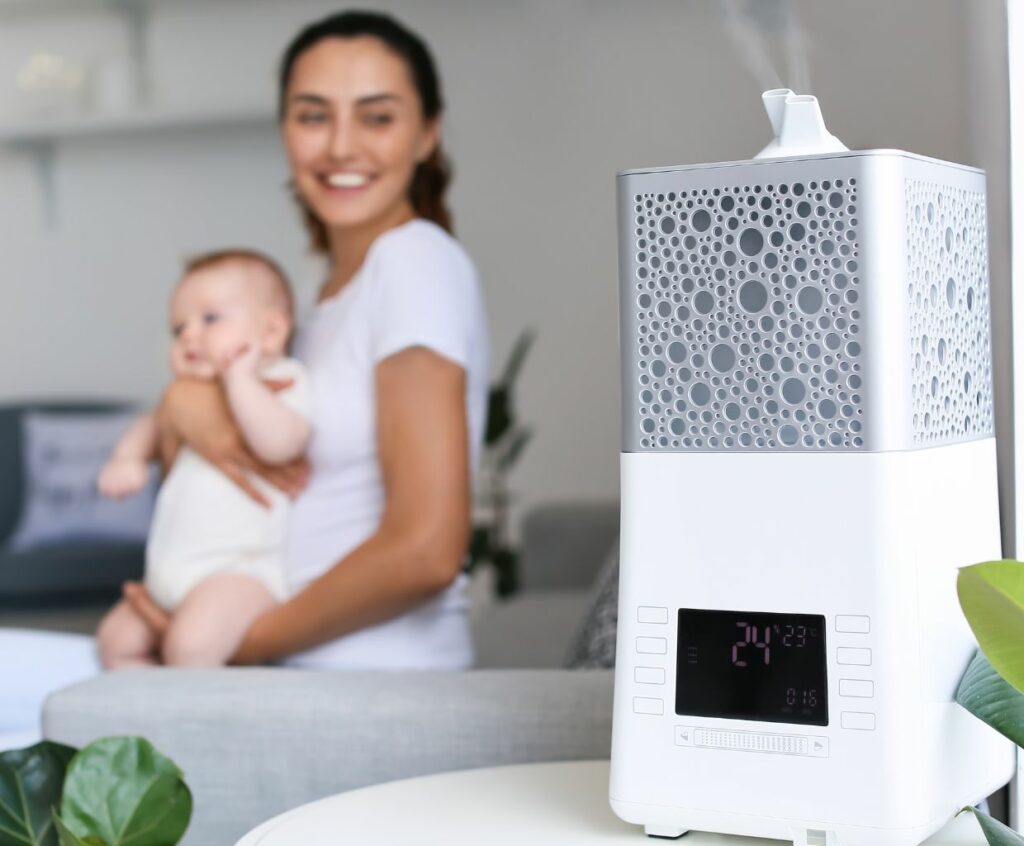The best thing you can do during pregnancy for yourself and your baby is to stay healthy. This includes preventing exposure to harmful chemicals and contaminants in your home. Mold is a fungus growing on damp surfaces, such as carpets or walls.
It’s common in basements because of their moist environments. If not adequately treated, mold can cause allergic reactions and breathing problems in adults and children.
But what about pregnant women? Can being exposed to mold during pregnancy harm your unborn child?
Content Summary
- 1 Mold in the basement during pregnancy – a common problem
- 2 Mold can cause allergic reactions, asthma, and breathing problems
- 3 Be aware of the risks of mold exposure during pregnancy
- 4 How can mold affect you during pregnancy?
- 5 Mold in the basement during pregnancy – Symptoms of mold exposure
- 6 How can I prevent mold exposure?
- 7 Pregnant women should take extra precautions to avoid mold exposure
- 8 Mold in the basement during pregnancy – Conclusion
Mold in the basement during pregnancy – a common problem
Mold in the basement is a common problem during pregnancy. Pregnant women should be aware of the health risks associated with mold and take steps to prevent it from growing in their homes. If you are pregnant, it is essential to:
- Reduce exposure to mold by keeping your home dry and ventilated.
- Use an air filter with a HEPA rating of at least 0.3 microns to remove particles from the air you breathe during pregnancy.
- Use a dehumidifier in basements or other areas prone to moisture problems if there are signs of excessive moisture like dampness, condensation, or water leaks from pipes or roofing material.
Mold can cause allergic reactions, asthma, and breathing problems
- Mold can cause allergic reactions.
- Mold can cause asthma and breathing problems.
- Mold can cause skin irritation.
- Mold can cause headaches because of the inflammation in your body caused by exposure to molds or fungi, according to the Environmental Protection Agency (EPA). If you have respiratory issues such as asthma or allergies, these symptoms could worsen if exposed to mold spores in your home environment.
Be aware of the risks of mold exposure during pregnancy
Mold is a type of fungi that grows on many different surfaces. Mold spores are tiny and can quickly get into your house through vents, cracked foundations, and other wall openings.
It’s essential to be aware of the risks of mold exposure during pregnancy so you know how to protect yourself and your baby.
How can mold affect you during pregnancy?
Mold can affect you during pregnancy in some ways. It can cause allergic reactions, asthma, and breathing problems.
It can cause headaches, skin irritation, nausea, and vomiting. Exposure to mold during pregnancy may make you sick with flu-like symptoms, including fever, muscle aches, and fatigue.
Mold exposure during pregnancy has been linked to miscarriage and stillbirths, so it’s essential that if you have any concerns about your health or the health of your unborn baby, you seek medical advice from a doctor or midwife.
Mold in the basement during pregnancy – Symptoms of mold exposure
If you’re concerned about mold exposure, the first thing to do is to get an accurate diagnosis from a doctor or midwife.
If you have any symptoms of mold exposure, such as coughing or wheezing, it’s essential to see your doctor immediately.
Some of the symptoms can include:
- Headache.
- Nausea.
- Vomiting.
- Coughing.
- Wheezing or shortness of breath, skin irritation and eye irritation (such as tearing, itching and redness) are also common symptoms of mold exposure. Symptoms may include fatigue, sinusitis, and more severe problems such as asthma attacks and allergic reactions.
How can I prevent mold exposure?
To prevent mold exposure, you should keep your house clean. Although it may seem like the obvious solution, it is still worth mentioning as it is an excellent habit.
Mold thrives in damp places and can spread quickly if not kept in check. Several types of molds also harm people with allergies or asthma, so keeping your home clean will give you peace of mind and help prevent any health problems from developing later on down the line.
There are some things that you should look out for when cleaning up mold:
- Check for mold regularly by walking around your house looking for discoloration or black spots on walls or ceilings, which could indicate an issue under the surface. If there’s any visible evidence, there’s already too much risk involved; however, if no signs are present, this does not mean there isn’t any lurking within reachable areas!
- If possible, do not use fans during cleanup because they will spread spores all over the place, leaving them open to getting into breathing zones after being disturbed again (this includes closets). Instead, try using HEPA filters vacuum cleaners since they’ll trap spores inside while removing them safely away from where they came from initially, which will help limit exposure rates among family members living near together inside one household unit space – ehhh… sorry guys, but mommy needs more coffee first thing tomorrow morning before doing anything else except maybe sleep through breakfast!:)
Pregnant women should take extra precautions to avoid mold exposure
If you are pregnant, it is essential to avoid being around moldy areas. Wear a mask when cleaning up any areas with mold. Wash your hands after being exposed to mold and keep your home clean and dry to prevent mold growth. If you are exposed to indoor molds during pregnancy, call your doctor as soon as possible.
Mold in the basement during pregnancy – Conclusion
Mold is a common problem in basements, but it can be hazardous for pregnant women. Mold exposure can cause an allergic reaction, asthma, and breathing problems during pregnancy.
If you notice mold in your basement, it’s essential to get rid of it immediately before the problem worsens or affects your health or your unborn baby.


